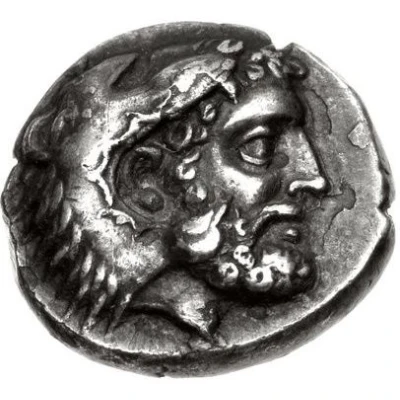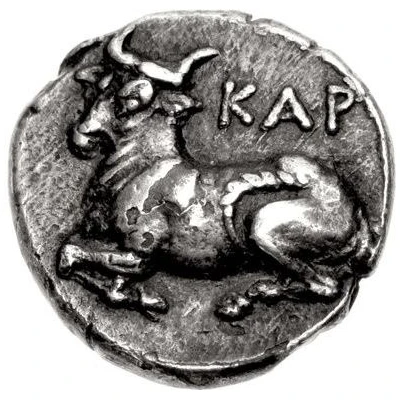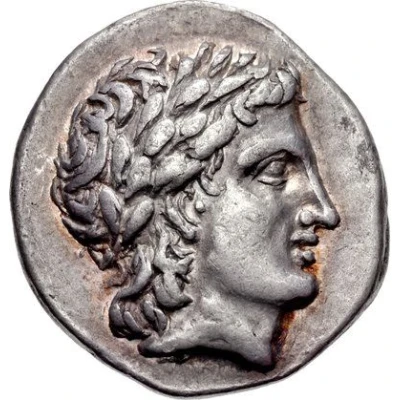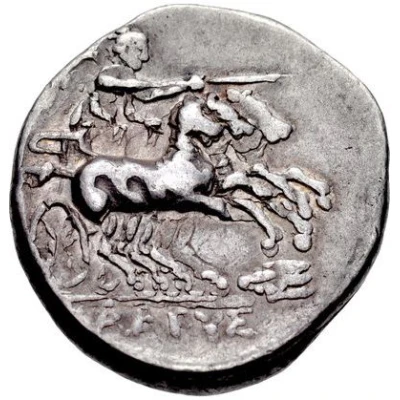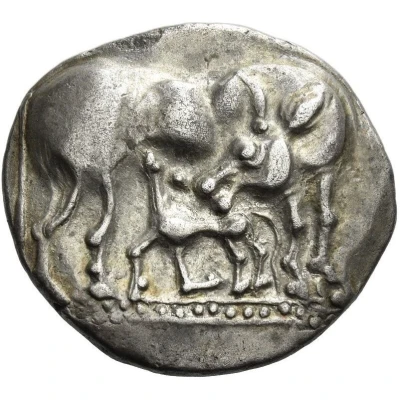
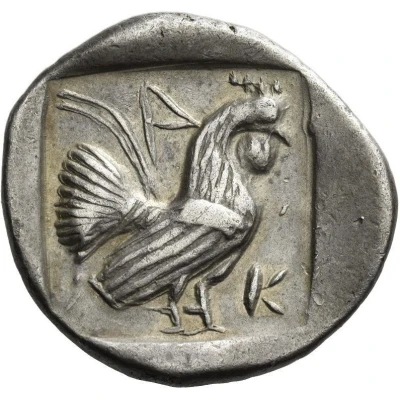

© Numismatica Ars Classica NAC AG
Didrachm 490 BC - 450 BC
| Silver | 8.45 g | - |
| Issuer | Carystus (Euboia) |
|---|---|
| Type | Standard circulation coin |
| Years | 490 BC - 450 BC |
| Value | Didrachm (2) |
| Currency | Drachm |
| Composition | Silver |
| Weight | 8.45 g |
| Shape | Round (irregular) |
| Technique | Hammered, Incuse |
| Demonetized | Yes |
| Updated | 2024-10-09 |
| Numista | N#398062 |
|---|---|
| Rarity index | 100% |
Reverse
Cock standing right; within incuse square.
Script: Greek
Lettering: K – A
Comment
Hurter, Archaischer Silberfund, in Essays Leo Mildenberg 13; Imhoof-Blumer p. 221, 54.
Only two specimens known.
Interesting fact
The Didrachm from Carystus (Euboia) was used as a form of currency in ancient Greece and was equivalent to two drachmas, which was the standard unit of currency at the time. The coin features an image of a bee on one side and a helmeted head of the goddess Athena on the other. The bee was a symbol of the city of Carystus, which was known for its honey production. The coin's design was meant to showcase the city's wealth and prosperity.
